The FX files: Pro Co Rat
Everything you need to know about the definitive hard-clipper and benchmark for heavy distortion pedals
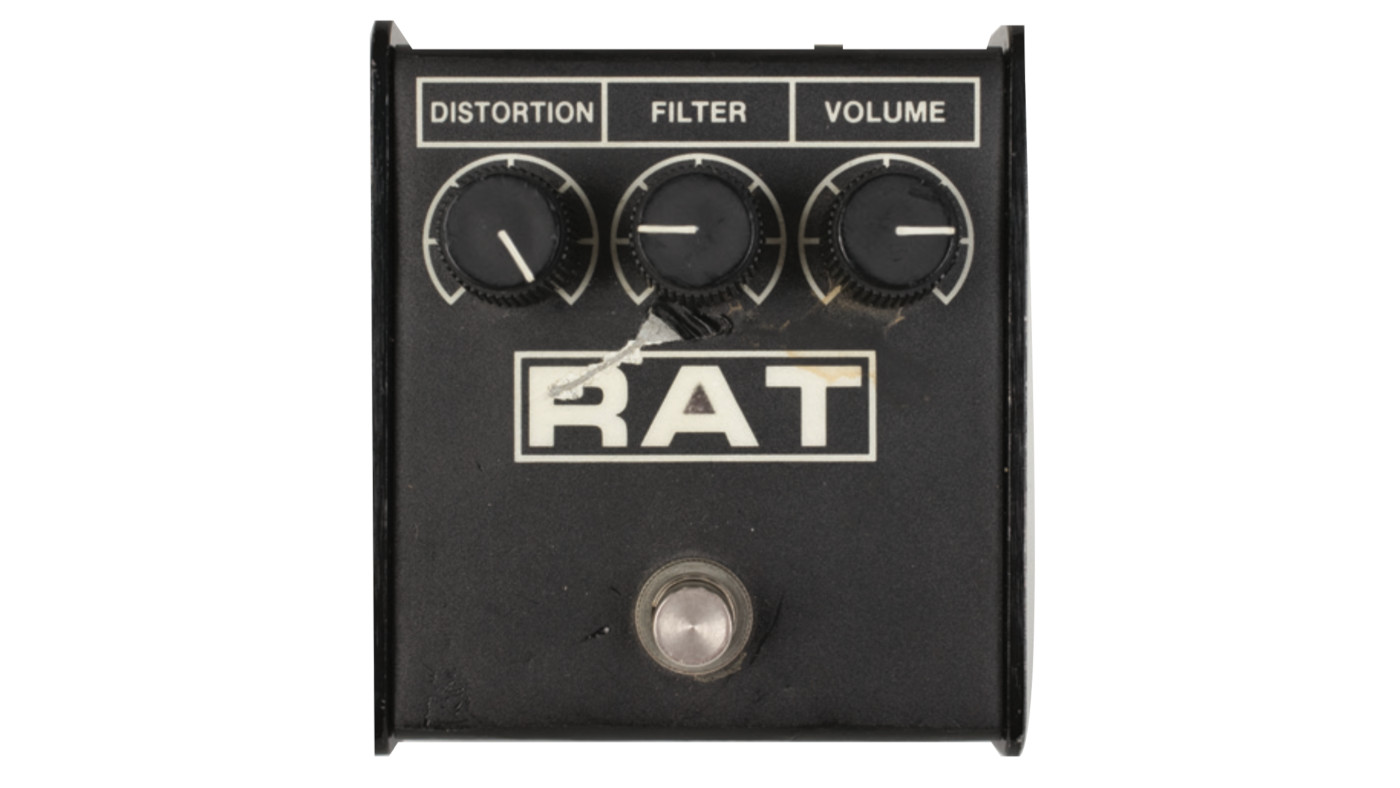
Since 1978 the quirks of the ProCo Rat have earned it a title of a true classic pedal. Today, almost every hard-clipping distortion likely owes it a passing debt at least.
The Rat was conceived by Scott Burnham and Steve Kiraly in Kalamazoo, Michigan in 1978. The first pedal was a custom order, but after some tweaks, the ProCo company started producing the units commercially in 1979. It was quickly adopted by artists seeking a punchy, heavy distortion tone, although it was also capable of delivering everything from dirt to violin-like sustain.
It was quickly adopted by artists seeking a punchy, heavy distortion tone
Unlike overdrives which used soft-clipping diodes, like the Tube Screamer, the Rat employed two symmetrical diodes to ground after the gain stage, resulting in a hard, square-wave clip. However, that’s not the end of the RAT’s tone story; it’s actually a little weirder than that.
In the original units, a LM308 op-amp was used. Its response, or slew rate, was slow, resulting in a significant amount of clipping in the op-amp, as well as high- frequency attenuation. This, combined with a decent mid bump around 1kHz gave the Rat its trademark aggressive tone. Even with hard-clipping diodes, with the original op-amp, most of the signature clipping is the op-amp. The LM308 affected the EQ too, letting sub-500Hz frequencies through, while attenuating strongly above 5kHz or so.
The Rat has found a home on countless guitarists’ pedalboards, from shredders like Nuno Bettencourt to a who’s-who of grunge and shoegaze. Most notably, Rivers Cuomo from Weezer is a fan, and all the members of Nirvana are known to have used a RAT - although admittedly, Dave Grohl with his later band Foo Fighters - while shoegazers like Neil Halstead of Slowdive and Mark Gardener of Ride are also owners.
Distortion:
The distortion pot controls voltage gain, and thus the amount of clipping. On paper, it can deliver a whopping 67dB of gain, but in practice due to the slew characteristics of the LM308 op-amp, this number will not be reached. Despite the RAT shining at higher gain settings, it’s also a surprisingly solid low-gain drive, particularly for boosting dirty amps, and has a fantastic mid-bump.
Get the MusicRadar Newsletter
Want all the hottest music and gear news, reviews, deals, features and more, direct to your inbox? Sign up here.
Filter:
The filter, or tone control, is a simple low-pass filter. With the bass pulled back, the signal will be closer to a square-wave, while with it fully open, the response will look almost triangle-wave shaped. Obviously, the EQ settings on your amp will also have a significant effect on the overall timbre and EQ profile of the distortion.
Volume:
Unlike some other pedals, changing the output volume will not alter the tone, thanks to a JFET buffer between the two circuit blocks. The output block is a simple 100K pot blending signal to ground.
Under the influence
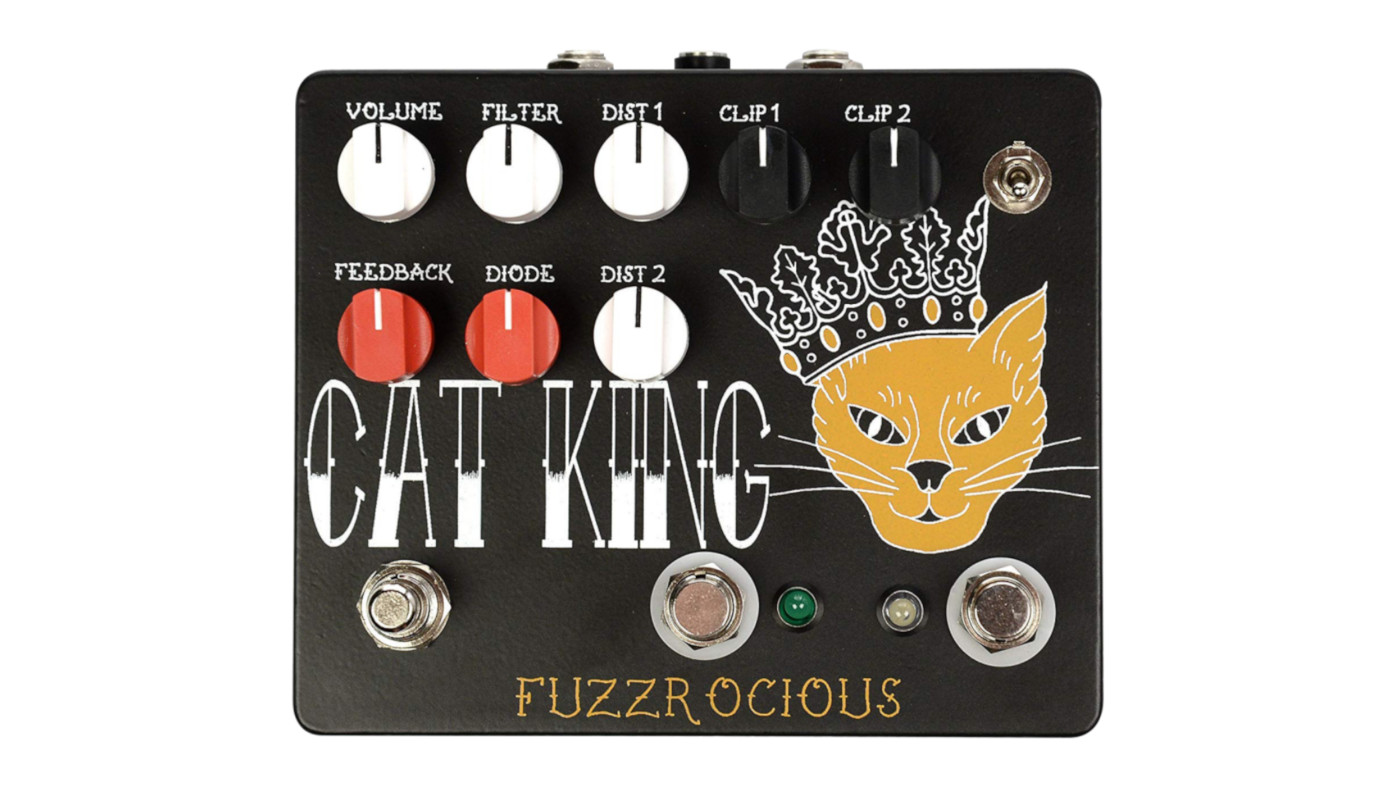
Fuzzrocious Cat King
£269
This Fuzzrocious is the big kahuna of RAT-inspired pedals, of course based around the correct LM308 chip. The Cat King has two separate sets of controls for the RAT circuit, so you can set up say, a low-gain and high gain setting, and then toggle them via footswitch. There’s a diode selector for different clipping tones, and a momentary feedback footswitch for all your noise-rock needs.
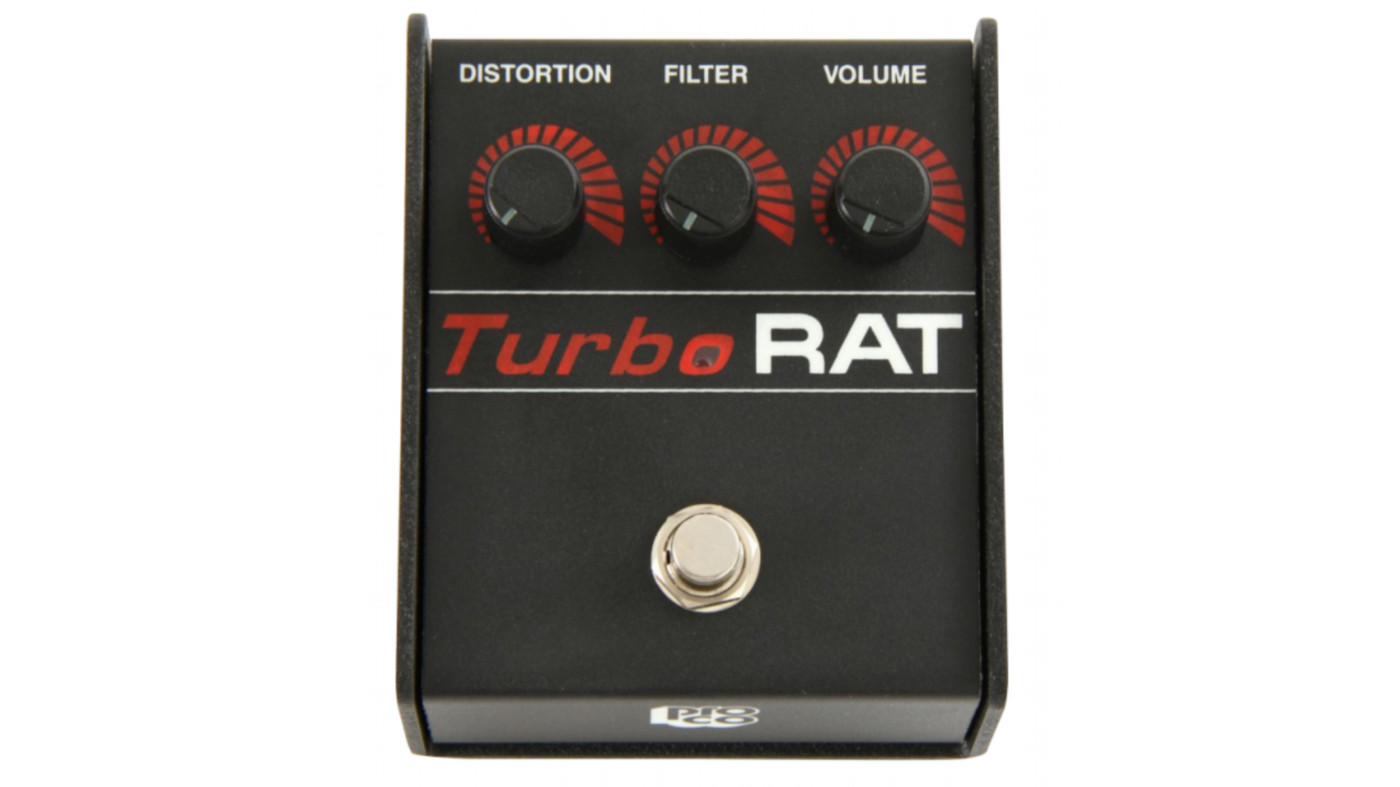
ProCo Turbo Rat
£139
This pedal is probably the most famous of ProCo’s updated RAT pedals. Like other modern RATs, it no longer uses the LM308 chip, resulting in a vastly different distortion sound. Supposedly most modern versions use the Texas Instruments OP07DP, meaning the clipping of the diodes comes more to the fore. This is where the Turbo RAT comes in, using LEDs for a fatter, woolier distortion tone.
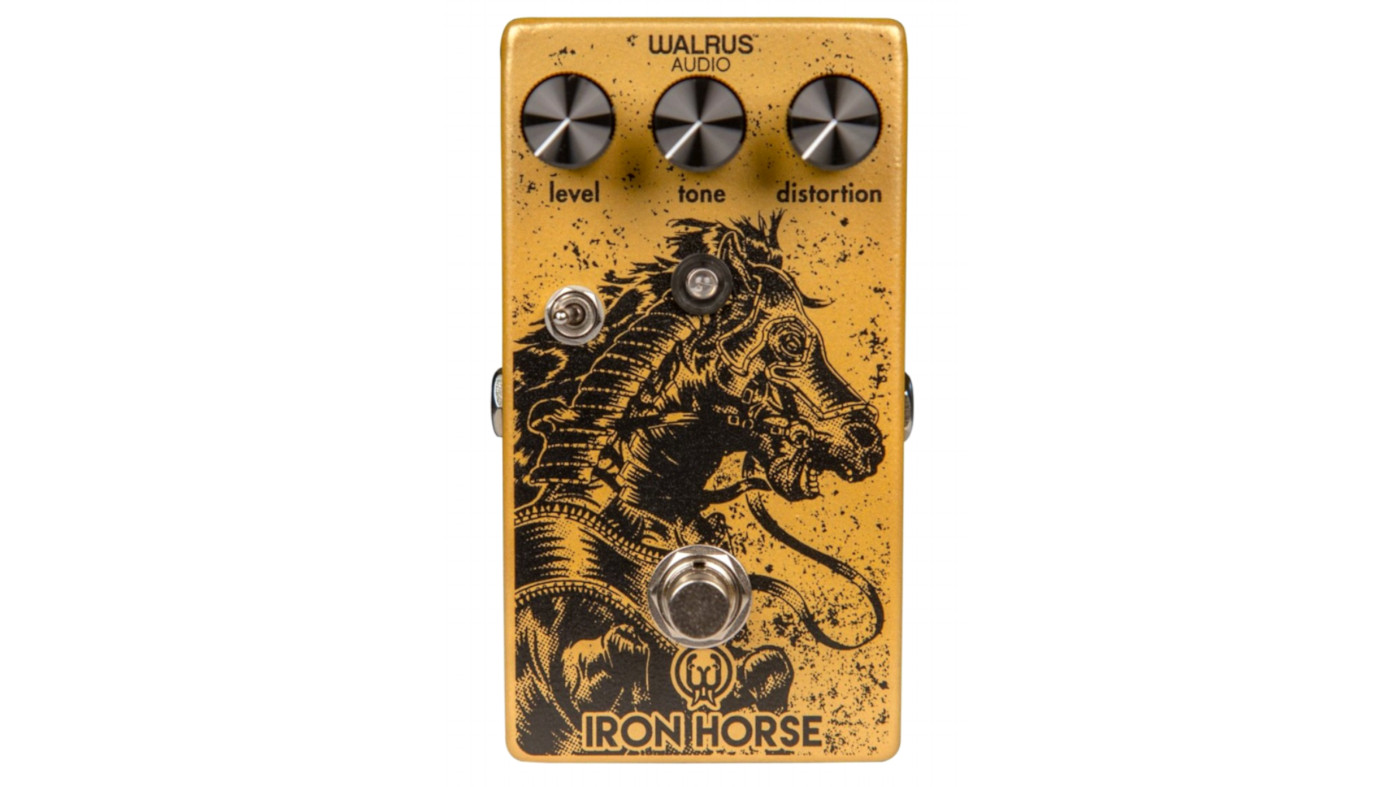
Walrus Audio Iron Horse V2
£192
To allow players to choose which model of RAT they’re after, this clone has a three-position toggle for selecting diodes. The mods allow for a bit more treble content, and easier-to-dial-in unity gain, rather than the RAT’s more common volume jump. It’s also based around the LM308 chip, so you’re getting a pretty close replica of the original.
Classic tones
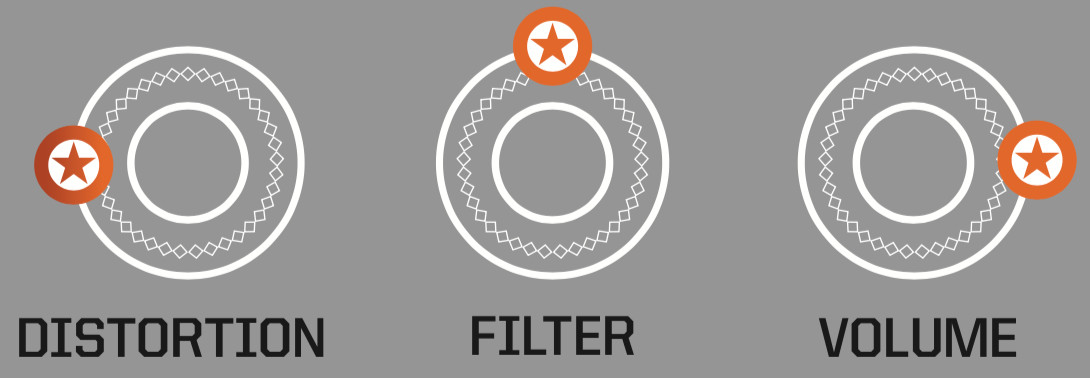
Chunky Queens Of The Stone Age drive
This beefy tone will heat up the tubes on any decent amp while delivering a harmonically rich drive tone. Switch to the bridge humbucker on an LP-style guitar for aggressive rhythm and lead, or try a neck single coil for muddy heft.
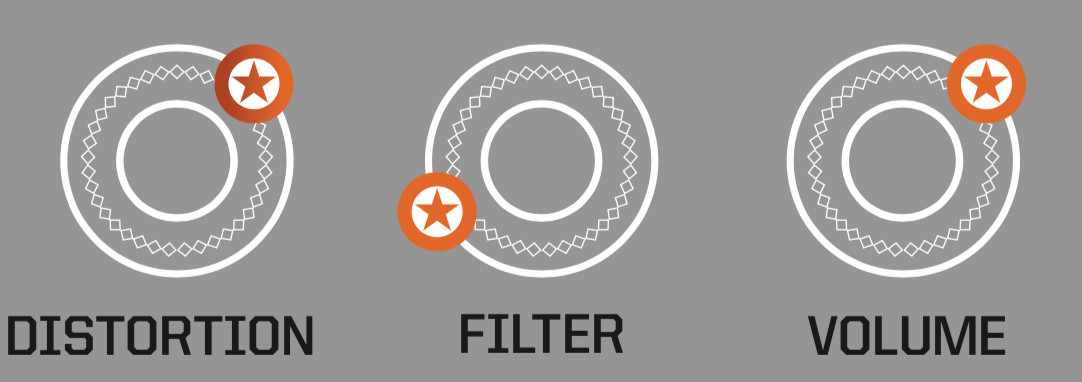
A perfect distortion
Use this setting to get into tones like the end of A Perfect Circle’s The Outsider. This will depend on how your amp is set up - we have a Marshall with a Les Paul on the bridge pickup, bass rolled off at the amp. This lets us thicken up the bass at the pedal and bring down the treble, which Billy Howerdel does on the guitar’s tone knob.

Gritty drive
With the tone rolled back on a Strat or Tele neck pickup, we’re in pretty tasty low-gain blues territory with this setting. Open the tone up, boost the volume, and you’re rapidly into the kind of muscular rock territory that defined the thrilling guitar tones of the early Swervedriver records.
Alex Lynham is a gear obsessive who's been collecting and building modern and vintage equipment since he got his first Saturday job. Besides reviewing countless pedals for Total Guitar, he's written guides on how to build your first pedal, how to build a tube amp from a kit, and briefly went viral when he released a glitch delay pedal, the Atom Smasher.
“A pedal that sings with harmonic richness and blooming touch response”: Tone King offers up boutique tube amp tones for your pedalboard with the Imperial Preamp
“Each and every unit is perfectly dialled in to the 'sweet spot' that can be so elusive to find in vintage pedals”: Pigtronix’s Gas Giant is a high-gain fuzz pedal with a FET-driven onboard noise gate












